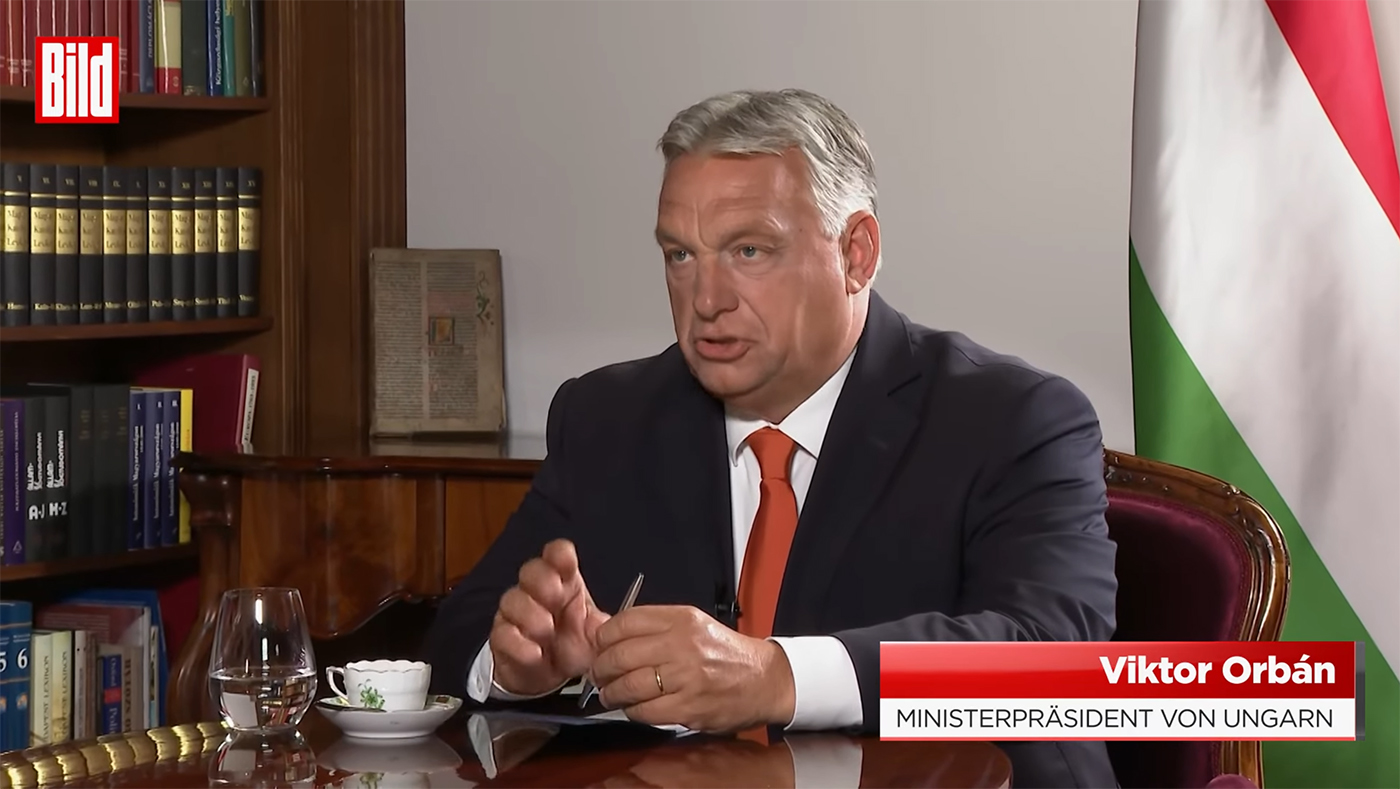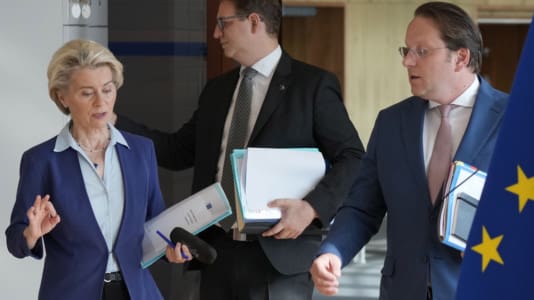During an interview on Tuesday, Hungarian Prime Minister Viktor Orbán told Germany’s Bild Zeitung that Hungary is not pro-Russian and that his policies are solely based on the good of the Hungarian people.
In the first half of the interview, Orbán was asked: “In 1989, you made a memorable speech in Budapest, calling for the withdrawal of Soviet troops from Hungary. Why is it that decades later, you finally sided with Russia and are seen in Europe as a friend of Putin?
His response was: “Are you trying to provoke me with this question? To say to a Hungarian that he is pro-Russian is something completely…” to which the interviewer interrupted him saying that he was “only quoting European people.”
Orbán went on to expand his answer regarding the allegation, saying: “This goes completely against our historical experience. I am fighting for Hungary. I am not interested in Putin. I do not care about Russia. I care about Hungary. My position and my actions are guided by what is good for Hungarians. And it is clear that everything that is happening between Russia and Ukraine is bad for Hungarians. It is dangerous for Hungarians. We have already lost human lives in this conflict. There is a Hungarian minority there (in Ukraine). The danger of war is in our immediate neighborhood, unlike for you Germans. For you, there is Poland and Hungary between Russia and the war in Ukraine.”
The interviewer interjected, saying that Poland is completely different, to which Orbán replied:
“What I am talking about is that war for us is not just a theoretical issue, not just a moral issue. It is happening in our immediate neighborhood. So, we have to be very careful about how we behave, what we do and what we don’t do. So, Hungary does what is in the interest of the Hungarian people, period. If you want to know how Hungarians feel about Russia, remember that the ’56 revolution against the Soviet Union is part of our DNA. Go to the House of Terror Museum and you will see how Hungarians feel about it.”
During the interview, Orbán also discussed possible outcomes to the war, where he stated his belief that Ukraine has a serious disadvantage in terms of raw manpower.
“The problem is that the Ukrainians will run out of soldiers before the Russians and that will be a decisive factor in the end. That’s why I keep saying, I don’t want to influence the Ukrainians, but I keep saying peace, peace, peace. Otherwise, they will lose huge amounts of wealth and many, many human lives, and the scale of the destruction will be unimaginable. So for the moment, peace is the only solution. Peace at the moment means a ceasefire. I am arguing on the basis of the quickest way to achieve a ceasefire.”
The Bild interviewer noted that Ukrainian President Volodymy Zelensky told Bild that Ukraine would not sit down to negotiate with Russian President Vladimir Putin until it had taken back all territories occupied by Russia. Orbán replied: “I am aware of this opinion. But it’s actually what the Americans want. Ukraine is no longer a sovereign country. They have no money, no weapons. They can only continue to fight because we support them. The West supports them. Therefore, there will be peace when the Americans decide that they want peace.”
He went on to say, “We want to save Ukraine. And the only way we can save it is if the Americans open negotiations with the Russians, if they reach an agreement on the security system and find a place for Ukraine in this new security system.”
He added that “If the Americans say, ‘Guys, we want peace, so we’re not going to give you more money and weapons,’ then there is no alternative for anybody, including the Ukrainians: We have to negotiate, we have to make peace and a ceasefire. So it is in the hands of the Americans.”
Asked whether Vladimir Putin is a war criminal, Orbán said “no, he is not” and then expanded:
“Because there is a war going on. We can talk about war crimes after the war. If we want a ceasefire, we have to negotiate, we have to convince the parties to the conflict to sit down and negotiate. If we want to invite the parties to come and negotiate, but we arrest them, that is not the best idea. So we can talk about all the legal consequences, the criminal consequences, after or in the context of peace. So it is not appropriate to talk about it at the moment.”






